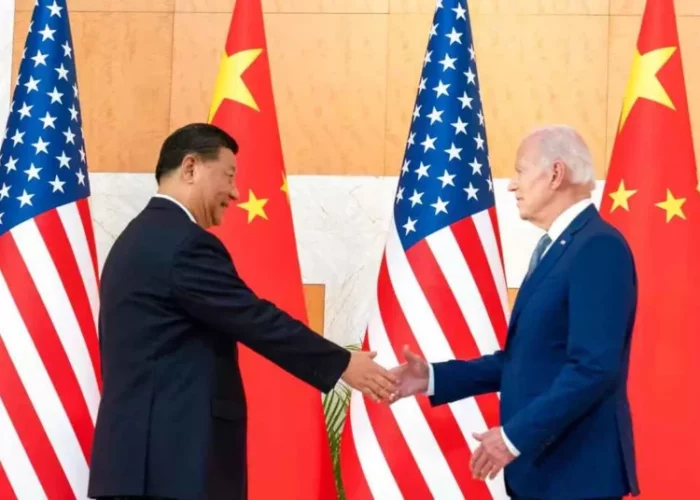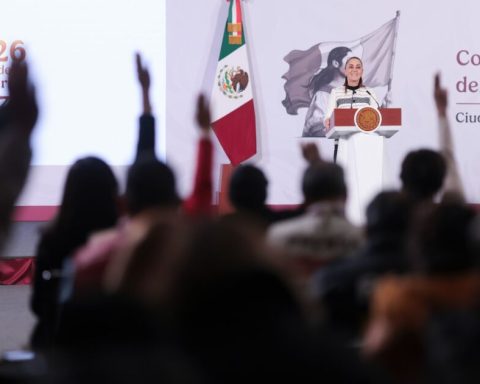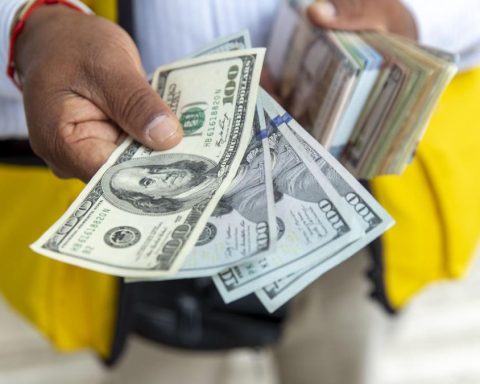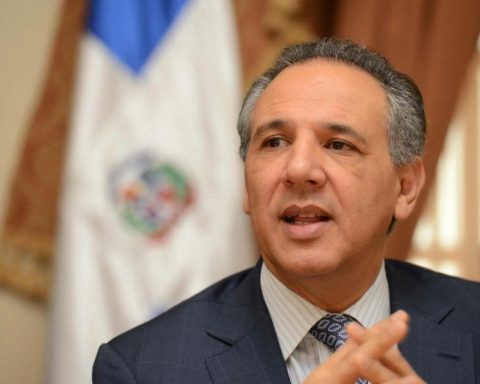President Joe Biden and Chinese President Xi Jinping began their first in-person meeting since the US president took office nearly two years ago on Monday amid rising economic and security tensions between the two superpowers vying for influence. world.
Xi and Biden shook hands at a luxury hotel in Indonesia, where they are attending the summit of the Group of 20 major economies. Starting their conversation, Biden said that he and Xi have a “responsibility” to show that their nations can “manage our differences” and identify areas of mutual cooperation. Xi added that he hoped the two would “elevate the relationship” and that he was willing to have a “frank and in-depth exchange of views” with Biden.
Both arrived at the expected meeting with a reinforced political position in their country. Democrats triumphantly retained control of the US Senate, with the prospect of increasing their ranks in a runoff election in Georgia next month, while the Communist Party’s national congress granted Xi a third five-year term in October, breaking with tradition.
“We have very little misunderstanding,” Biden told reporters in Phnom Penh, Cambodia, on Sunday, where he took part in a meeting of Southeast Asian countries before leaving for Indonesia. “We just have to figure out where the red lines are and… what are the most important things for each of us going into the next two years.”
Biden added: “His circumstance has changed, to say the obvious, at home.” The president said about his own situation: “I know I’m going to come in stronger.”
White House advisers have repeatedly tried to downplay any notion of conflict between the two nations, stressing that they believe the two countries can work together on shared challenges such as climate change and health security.
But US-China relations have grown more tense under successive US administrations, as economic, trade, human rights and security differences have come to the fore.
As president, Biden has repeatedly criticized China for human rights abuses against the Uyghur people and other ethnic minorities, crackdowns on Hong Kong democracy activists, coercive trade practices, military provocations against Hong Kong self-government, Taiwan and differences over the continuation of Russia’s war against Ukraine. Chinese officials have largely refrained from publicly criticizing Russia’s war, though Beijing has avoided direct support such as supplying weapons.
Taiwan has become one of the most contentious issues between Washington and Beijing. On multiple occasions during his presidency, Biden has said that the United States would defend the island, which China is targeting for eventual unification, in the event of a Beijing-led invasion. But administration officials have stressed on every occasion that the US’s “one China” policy has not changed. The policy acknowledges the Beijing government while allowing informal relations and defense ties with Taipei, and its “strategic ambiguity” stance on whether it would respond militarily if the island were attacked.
Tensions rose when House Speaker Nancy Pelosi, a Democrat, visited Taiwan in August, prompting China to retaliate with military exercises and the launch of ballistic missiles in nearby waters.
The Biden administration also last month blocked exports of advanced computer chips to China, a national security measure that bolsters the United States’ competition against Beijing. Chinese officials were quick to condemn the restrictions.
And while the two men have had five phone or video calls during the Biden presidency, White House officials say those meetings are no substitute for Biden being able to meet and assess Xi in person. That task is even more important after Xi tightened his grip on power through the party congress, as lower-level Chinese officials have been unable or unwilling to speak on his leader’s behalf.
Asked about the long-awaited meeting, Chinese Foreign Ministry spokesman Zhao Lijian said at a press conference last week that China was seeking “win-win cooperation with the US,” while reiterating Beijing’s concern about the US position on Taiwan.
The United States must stop obscuring, hollowing out, and distorting the “one China” principle and abide by the basic norms of international relations, including respect for other countries’ sovereignty, territorial integrity, and non-interference in the internal affairs of China. other countries,” he said.
Xi has remained close to his country during the global COVID-19 pandemic, where he has pursued a “zero COVID” policy that has led to massive lockdowns that have jeopardized global supply chains.
In September he made his first trip outside of China since the start of the pandemic, stopping in Kazakhstan and then Uzbekistan to participate in the eight-nation Shanghai Cooperation Organization with Putin and other leaders from the Central Asian security group.
White House officials and their Chinese counterparts have spent weeks negotiating all the details of the meeting, which is being held at Xi’s hotel with translators providing simultaneous interpretation through headsets.
US officials were eager to see how Xi approaches the meeting with Biden after cementing his position as the undisputed leader of the state, saying they would wait to assess whether it made him more or less likely to seek areas of cooperation with the US.
Biden and Xi each brought small delegations to the talk, and US officials expected Xi to bring newly promoted government officials to the meeting and expressed hope that this could lead to more substantial engagements later.
Before meeting Xi, Biden first sat down with Indonesian President Joko Widodo, host of the G-20 summit, to announce a series of new development initiatives for the archipelago nation, including investments in climate, security and education. .
Many of Biden’s talks and engagements during his three-country tour – which took him to Egypt and Cambodia before landing on the island of Bali on Sunday – were aimed at preparing him for his meeting with Xi and sending a signal that the United States it would compete in areas where Xi has also worked to broaden his country’s influence.
In Phnom Penh, Biden sought to reassert US influence and commitment in a region where China has also made inroads and where many nations feel allied with Beijing. He also sought information on what he should raise with Xi in talks with the leaders of Japan, South Korea and Australia.
The two men have a history dating back to Biden’s time as vice president, when he embarked on a mission of learning with Xi, then vice president of China, on trips that took Xi to Washington and Biden through trips across the plateau. tibetan The US president has stressed that he knows Xi well and that he wants to take advantage of this meeting in person to better understand the position of both.
Information of: israel hayom
Photo credits: PA












